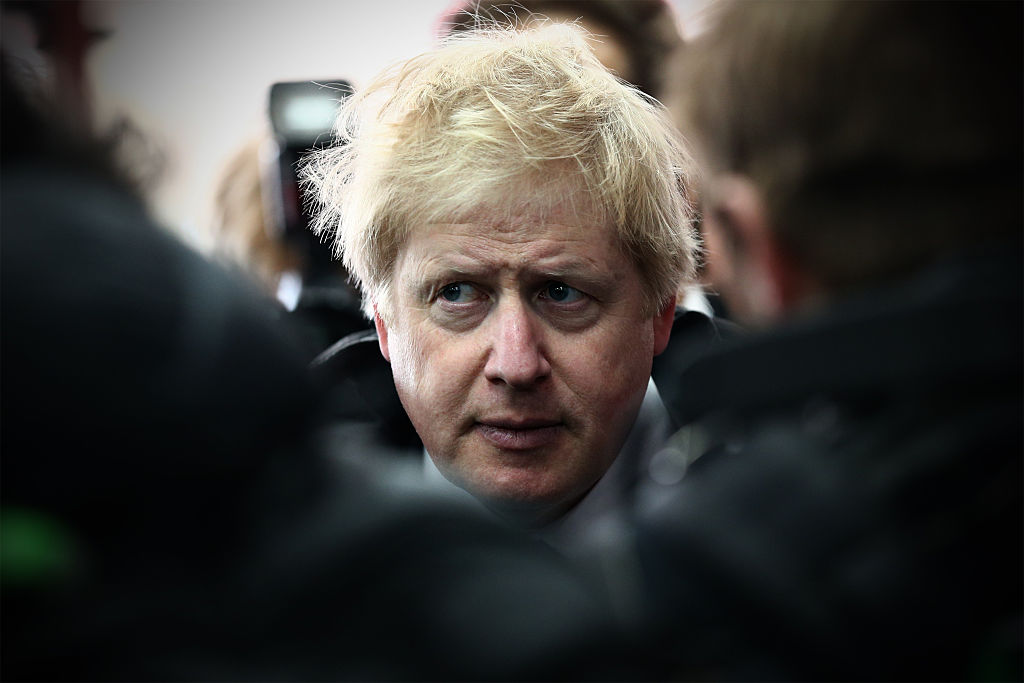Upon how many fronts can a government fight at any one time? Political capital has a short-enough half-life as it is without the risk of it being diluted through simultaneous multiple battles. Concentration of political firepower matters.
At a rough count, Boris Johnson’s ministry is currently fighting the civil service, the media, the European Union and now, of course, a looming public health emergency from a likely coronavirus epidemic. There is also the small matter of a budget and the government’s actual – or, if you prefer, notional – plans for ‘levelling-up’ the United Kingdom.
Some of these are more significant problems than others, and some of them required no super-forecasting skills to foresee. The Home Office may be as dysfunctional a department as it has ever been but installing Priti Patel as Home secretary always seemed a curious way of fixing that.
This is a government that will not enjoy much of a honeymoon, even if it is fortunate to enjoy no opposition in parliament worth the name.
But then this is a government that prides itself on muscular disruption and sundry other fashionable nostrums. The business of government, however, is not a business. Continuity and incremental change is never as interesting as blowing things up and starting again but this, nevertheless, is what government is charged with managing. Sweeping into office and grandly declaring everything and everyone as useless is doubtless very pleasing but rarely delivers the kind of change it screams is so very necessary. It is, moreover, a vainglorious stance wholly unbecoming of a so-called conservative government.
There is also something remarkable, even by the standards of the present day, about the spectacle of loyal, nodding, Tory backbench MPs lining up to defend the Home secretary against what appear, at first blush anyway, to be wholly plausible accusations of bullying, intimidation and general dreadfulness so very soon after many Tory MPs – many of the same Tory MPs –joyfully pointed out accusations of bullying, intimidation and general dreadfulness made against John Bercow. The wages of being a ‘team-player’ are always paid in absurdity but, even so, this has been quite something.
Patel will have to go. Maybe not this week and perhaps not even this month but without some wholly improbable transformation of character and aptitude, soon and forever. Even in politics, the old suggestion of treating others as you might wish to be treated yourself still has some value. Patel, who has flamed out of previous jobs, will flame out of this one even if the current enquiries into her conduct and relationships with her officials and subordinates prove inconclusive. It is, I am afraid, merely a matter of time.
Save on the question of Brexit, this government has scarcely left the starting blocks yet it is already down a Chancellor and half a Home secretary. These are fires started by the government itself and taking energy and resources to put them out; energy and resources that might more profitably be spent elsewhere.
Still, at least there is some sign of a thaw in the ministry’s relationship with the press. Matt Hancock was despatched to the Today programme to remind its listeners that, in the time of coronavirus, there is in fact still a government. If this is the reset of the government’s relationship with the media then, for its own sake, so much the better. Government is hard enough without cultivating additional, and unnecessary, enemies and then boasting about how this proves your own single-minded toughness. As with the civil service, so with the press.
That boasting protests too much and, in turn, fosters the opposite impression to that intended. It hints at weakness beneath the bluster and bravado. This is a government that will not enjoy much of a honeymoon, even if it is fortunate to enjoy no opposition in parliament worth the name. The Labour party’s withdrawal from the field, though, is also an invitation to hubris. We are the champions and the masters, this government swaggers, forgetting that it has its majority because it beat Jeremy Corbyn. From time to time it might be wise to think on that and conclude that a little more modesty might be in order.
Not least since the coronavirus seems likely, as matters stand, to prove a still mightier short-term foe than either the press or the civil service. The prime minister has emerged from his self-imposed purdah and, after a less than convincing start, has at least begun the process of reassurance and guidance that citizens might expect – and even demand – from its government in such times. Even so, and even if it hits lucky, there is every prospect of an already creaking NHS being overwhelmed by the virus. Should that happen – and it would be decent if the government’s opponents shared the hope it won’t – the government’s ability to respond to events, far less master them, will be tested anew.
Reinventing yourself after a decade in power is a testing business too. A new man at the top and a new mandate are not quite enough. It is not a fresh start, more a variant of previous ministries. That too ensures that the government’s political capital will swiftly be more depleted than would be the case if it were an entirely new administration.
At this stage, half of the government’s business consists of solving things that have been left unsolved for a decade – which voters therefore think should have been solved by now – so you receive little credit for doing so. The other half is solving problems that have arisen as a result of, or in response to, your party’s previous attempts at solving problems; you get little credit for that either. In that respect, even without the challenges – opportunities, if you must – of Brexit, this is a government that has rather less room for error or manoeuvre than it might think. Like life, government comes at you fast.







Comments